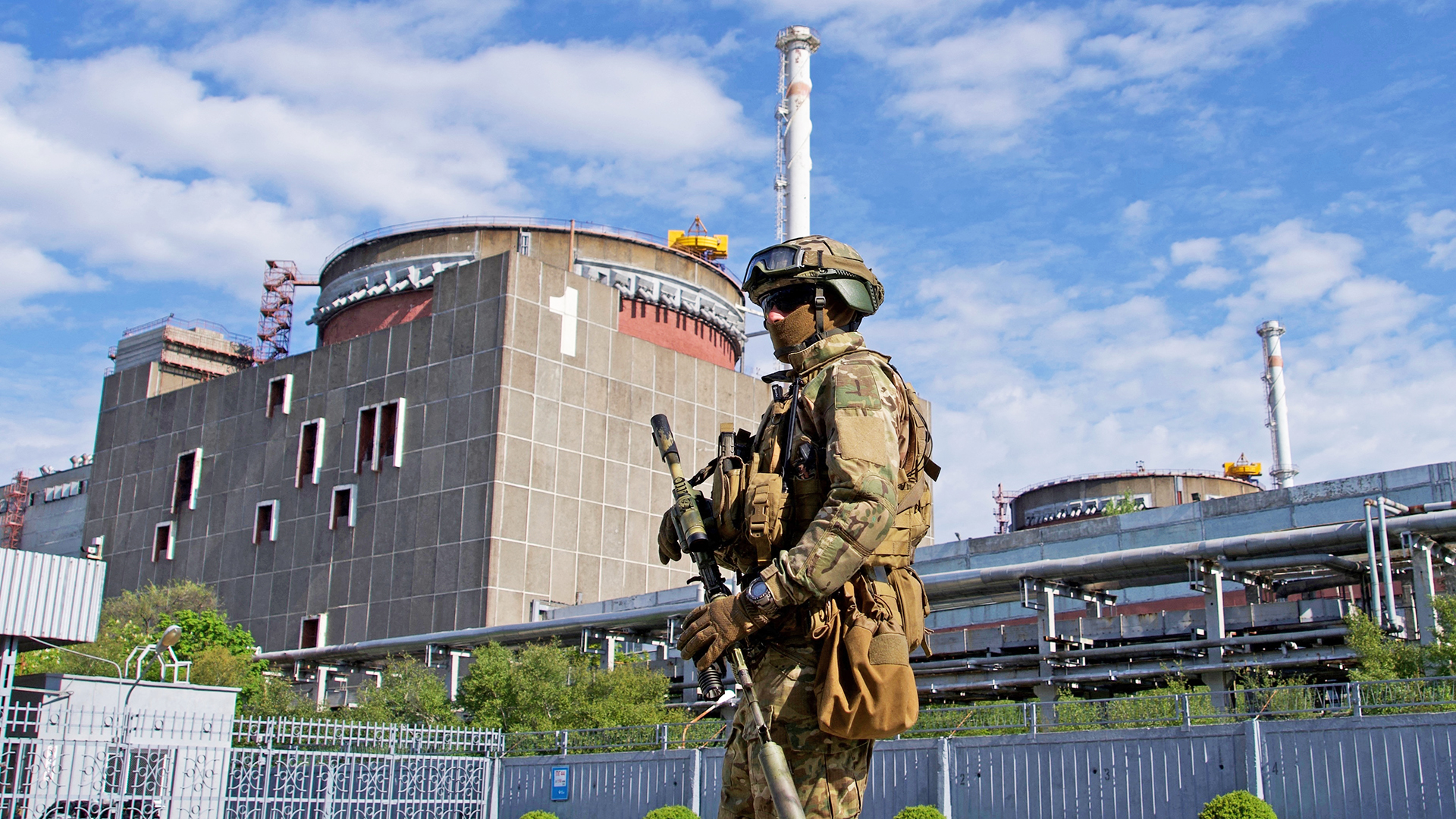The United States has now accused Russian forces of using the Zaporizhzhia nuclear power plant, the largest in Europe, as a “nuclear shield,” prompting senior United Nations dignitaries to insist that the situation at the plant is getting “out of control.” Russia had already sparked intense criticism after shelling near the plant initially began in March when the country moved to seize it during the opening weeks of its invasion of Ukraine. Now it would appear that heavy use of the installation as an artillery firebase has put it in major danger.
According to Reuters, during an August 1 news conference at the United Nations headquarters in New York City, U.S. Secretary of State Antony Blinken told reporters that the actions being carried out by Russian forces at Zaporizhzhia in the southeastern city of Enerhodar are the “the height of irresponsibility.” This statement followed Blinken’s accusation that the invading country had been using the plant as a military base to carry out artillery strikes on Ukrainian forces. Firing munitions like rockets, missiles, and mortars in close proximity to a nuclear power plant is already generally dangerous, but doing so from such a position also prevents Ukrainian forces from launching a counter-attack.

However, Russia is adamantly denying these accusations. The Permanent Mission of the Russian Federation to the United Nations released a statement shortly after Blinken’s news conference, saying that the actions of the Russian Armed Forces in no way undermine Ukraine’s nuclear security or impede the routine operation of the plant. The statement goes on to assert that Zaporizhzhia is currently under Russian control but that its seizure took place with the sole purpose of “preventing Ukrainian nationalist formations and foreign mercenaries from making use of the current situation in Ukraine in order to carry out a nuclear provocation with most unpredictable consequences.”
“There are no armed formations at the Zaporozhye NPP [nuclear power plant], except for a limited number of military servicemen, that is required to ensure safety and security at the power plant,” read the statement. “Over the recent months, Ukrainian armed formations held a series of provocations that used UAVs (i.a. those delivered by NATO states) and aimed at sabotaging the normal operation of the NPP, frightening its personnel, undermining security of the power plant, and ultimately, creating a threat of a nuclear disaster.”
To better understand the Ukrainian side of the issue, The War Zone reached out to Olena Pareniuk, senior researcher for Ukraine’s Institute for Safety Problems of Nuclear Power Plants, who provided valuable insight into the current environment at the Zaporizhzhia nuclear site. Pareniuk has spent several years of her career studying and investigating the aftermath of nuclear disasters including the fallout from both the 1986 Chernobyl Nuclear Power Plant explosion and the Fukushima Daiichi Nuclear Power Plant tragedy in 2011. You can read more about her experiences and thoughts on the dangers posed to Ukraine’s nuclear infrastructure due to Russia’s invasion in this past War Zone piece here.
“The situation is definitely not normal,” wrote Pareniuk in her response to The War Zone. “But the IAEA [International Atomic Energy Agency] refuses to do anything but claim their concerns. And moreover, they insist on a visit to Zaporizhzhya NPP that will let Russia legitimize its presence on the NPP. Ukraine will keep refusing the IAEA mission to ZNPP until it is back under our control.”
It is important to note that during the news conference Blinken also asserted his belief that the IAEA should be given access to the plant, and IAEA Director General Rafael Grossi noted that not doing so would be an example of unconscionable inaction. Pareniuk’s perspective on the situation at the Zaporizhzhia plant only continued to deviate from the Russian Federation’s statement denying Blinken’s accusations. She says the Russian military equipment located at the plant is a major threat.
“There are at least 14 military vehicles/armor and explosives inside the engine hall of the NPP, very close to the reactor,” Pareniuk wrote. “More than 100 [NPP] personnel were kidnapped and tortured, five are still missing. If it explodes, it can cause severe damage to the reactor and might cause a leak of radioactivity.”
This sentiment was further echoed by Grossi in an interview with the Associated Press where the IAEA director told the outlet that “every principle of nuclear safety has been violated” and that “what is at stake is extremely serious and extremely grave and dangerous.”

Both Grossi and the IAEA as a whole have implored Russia and Ukraine to urgently grant nuclear experts access to the plant in order to attempt to stabilize the situation as much as possible before it is too late. Beyond that, Grossi noted that “patchy” contacts between the IAEA and the Zaporizhzhia plant, interruption in the supply chain of equipment and spare parts, and a lack of regularly scheduled routine inspections have also contributed to the precarity unfolding at the plant.
At this point, an IAEA visit to the Zaporizhzhia nuclear plant would require the cooperation of both Ukrainian and Russian forces for the sake of global safety. Both the IAEA and the UN treat the controlled and regulated operation of nuclear power plants as a non-political issue, but the warring countries would have to put aside their hostilities in order to make such a concession.
“If an accident occurs at Zaporizhzhia Nuclear Power Plant, we will not have a natural disaster to blame – we will have only ourselves to answer to,” said Rossi at the UN conference. “We need everyone’s support.”
Contact the author: Emma@thewarzone.com
